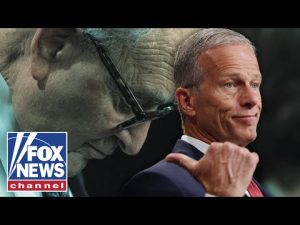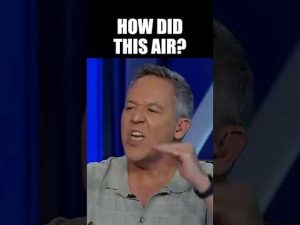### Shocking Revelations: Government Censorship and Social Media
The revelation that government agencies, particularly the FBI, were exerting direct pressure on social media platforms to censor speech has stirred up quite a controversy. It turns out that this wasn’t just about timid CEOs acting out of fear; this was the government itself exerting control to promote a specific narrative—an action that blatantly contradicts the First Amendment rights upheld in the Constitution. These developments reveal a disturbing trend that has been lurking in the shadows for years, one that raises fundamental questions about the sanctity of free speech in America.
A prime example of this controversial engagement came to light with the FBI’s Foreign Influence Task Force, which fervently communicated with Twitter during key events such as the protests following the tragic death of George Floyd. The FBI claimed they were aware that much of the content on Twitter regarding these protests was constitutionally protected, but they were also interested in any suspicious foreign interference. Incredibly, they encouraged Twitter to share any information on malign foreign actors allegedly attempting to manipulate discussions. This raises eyebrows: Were they simply looking out for national security, or were they also keeping tabs on American citizens exercising their rights?
The implications of such government involvement are staggering. When it boils down to it, a relationship that should protect the public’s right to freely express their opinions seems to have transformed into a mechanism for monitoring and potentially stifling dissent. To further compound the issue, reports have surfaced about gag orders placed on companies like Twitter, preventing them from disclosing their interactions with government agencies. This alarming secretive collaboration not only undermines public trust but also highlights an unsettling reality: a government increasingly concerned with managing the narrative at the expense of individual rights.
Amidst this backdrop, the emergence of shadow banning has added another layer to the censorship conundrum. One prominent case involves Jay Bhattacharya, a well-respected epidemiologist critical of the governmental response to the COVID-19 pandemic. His account was blacklisted on Twitter after he advocated for alternate approaches to pandemic management, creating a bitter cocktail of irony when considering that he was silenced for expressing opinions that were, in fact, legitimate and based on scientific inquiry. The very same government organizations that should be fostering open debate and inquiry appeared to be exerting pressure on social media platforms to silence those dissenting views.
The story does not end there. A project developed by Stanford University, dubbed the Verality Project, has also come under scrutiny. This initiative collaborated with various tech companies in identifying and categorizing certain content as “misinformation,” regardless of whether it was based on true facts. In a bizarre twist of logic, the project classified true statements that did not align with the government’s preferred narrative as “malinformation.” This use of language has become dangerously flexible, morphing what constitutes truth into something that can be manipulated to fit ideological objectives. It seems that the new frontier of censorship is not simply the suppression of falsehoods but rather the silencing of voices that challenge governmental narratives, regardless of their factual basis.
As these revelations continue to unfold, they provoke a larger conversation about the balance between national security and the protection of free speech. The intertwining paths of government oversight and social media practices have left a significant mark on the landscape of American discourse. With technology evolving rapidly and the conversations around free speech becoming more pressing, one can only hope that the true spirit of the First Amendment survives the ongoing battle against censorship—a battle that plainly reflects the values of a free society.







